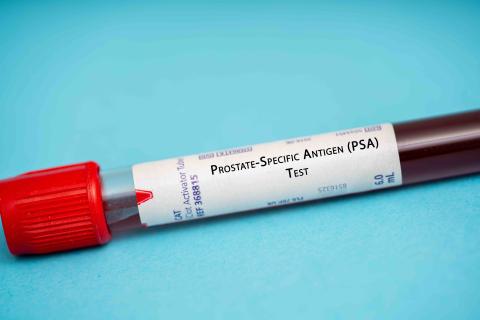Fuenlabrada University Hospital, Madrid
If you are the contact person for this centre and you wish to make any changes, please contact us.
Head of Urology Service, Hospital Universitario de Fuenlabrada, Madrid; Associate Professor of Health Sciences, Universidad Rey Juan Carlos; and Chairman of the Spanish branch of the European Randomized Study of Screening for Prostate Cancer

One of the problems with prostate cancer screening is that it results in a high rate of false positives, that is, erroneous diagnoses in people without the disease. A study in the UK has applied a genetic test to more than 6,000 people aged between 55 and 69, analysing 130 variants related to this tumour, which allows a ‘risk score’ to be calculated. According to the results, which are published in the journal NEJM, the test detected the disease more likely in people with higher values than traditional screening.

Prostate cancer screening tests using PSA (Prostate Specific Antigen) are associated with overdiagnosis, which calls into question their use. A clinical trial in men aged 50-60 years published in the journal NEJM has studied the possibility of adding an MRI test in those with an elevated PSA level and dispensing with biopsy if imaging finds no suspicious lesions. The results indicate that the procedure avoids more than half of clinically irrelevant cancer diagnoses that would not need treatment and only slightly increases the risk of failing to identify those that may become incurable. The authors recommend, on the basis of the study, to review the recommendations for such screening.

A study has analyzed data on prostate cancer incidence and mortality in 26 countries in Europe between 1980 and 2020. Its findings are that new diagnoses have increased due to the widespread use of PSA [prostate-specific antigen] testing, but mortality rates have not benefited in parallel. This suggests possible overdiagnosis, i.e., the detection of harmless tumors that are unlikely to cause symptoms or death in the patient's lifetime. The results are published in the journal The BMJ.

Most high-income countries do not have prostate cancer screening programmes for their entire population; prostate-specific antigen (PSA) tests can be done on an individual basis. In an opinion piece published in The BMJ, a group of urologists and epidemiologists specialised in prostate cancer screening argue for restricting the use of PSA tests to avoid over-detection and over-treatment.